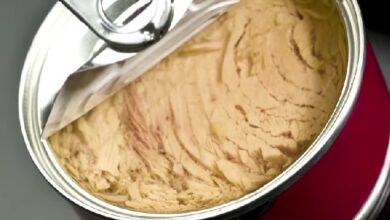Ribeye Steak Nutrition Facts
Ribeye steak, with its rich marbling and succulent flavor, is a favorite among steak lovers. But beyond its taste, what are the nutritional benefits and potential concerns of indulging in this delectable cut of beef? Let’s dive into the ribeye nutrition facts to understand its impact on your health.

Introduction
Ribeye steak is more than just a delicious meal; it’s a powerhouse of nutrients that can support your health in various ways. From its high protein content to its abundance of essential vitamins and minerals, ribeye steak can be a beneficial addition to your diet when consumed in moderation. However, like any rich food, it comes with considerations that should be kept in mind to maintain a balanced diet. This article will explore the nutritional profile of ribeye steak, its benefits, and the potential downsides, providing a comprehensive understanding of this popular cut of meat.
Nutritional Breakdown
A typical 3-ounce serving of ribeye steak provides:
- Calories: 229
- Total Fat: 16g
- Saturated Fat: 7g
- Protein: 22g
- Cholesterol: 60mg
- Iron: 1.44mg
- Zinc: 4.4mg
Vitamins and Minerals
Ribeye steak is a rich source of several essential vitamins and minerals, including:
- Vitamin B12: Supports nerve function and the production of DNA.
- Vitamin B6: Important for brain health and energy metabolism.
- Niacin (B3): Helps convert food into energy.
- Riboflavin (B2): Plays a role in energy production and cellular function.
- Iron: Essential for oxygen transport in the blood.
- Zinc: Crucial for immune function and protein synthesis.
- Selenium: Acts as an antioxidant, protecting cells from damage.
Health Benefits
Muscle Growth and Repair
The high protein content in ribeye steak makes it an excellent choice for those looking to build or repair muscle. Proteins are the building blocks of muscles, and ribeye provides a significant amount of high-quality protein.
Iron Absorption
Ribeye steak contains heme iron, which is more easily absorbed by the body compared to non-heme iron found in plant sources. This makes it an excellent choice for preventing iron-deficiency anemia.
Immune Support
The zinc and selenium found in ribeye steak play crucial roles in maintaining a healthy immune system. Zinc is essential for the development and function of immune cells, while selenium acts as an antioxidant.
Potential Concerns
High in Saturated Fat
One of the main concerns with ribeye steak is its high saturated fat content, which can contribute to increased LDL cholesterol levels and heart disease if consumed in excess. It’s important to balance ribeye with other leaner protein sources and maintain a diet that is varied and rich in fruits, vegetables, and whole grains.
Caloric Density
Ribeye steak is calorie-dense due to its fat content, which can contribute to weight gain if not balanced with physical activity and portion control. Regularly consuming large portions of ribeye can lead to an excess intake of calories and potentially result in weight gain.
Tips for Healthier Preparation
To enjoy ribeye steak in a healthier way, consider these tips:
- Grill or Broil: These cooking methods allow excess fat to drip away from the steak.
- Season Lightly: Use herbs, garlic, and olive oil instead of heavy sauces to enhance flavor without adding unnecessary calories.
- Pair with Vegetables: Serve ribeye with a variety of colorful vegetables to add fiber and essential nutrients to your meal.
- Watch Portions: Stick to a 3-4 ounce serving size to keep calorie and fat intake in check.

Frequently Asked Questions
What is the nutritional value of ribeye steak?
A 3-ounce serving of ribeye steak contains approximately 229 calories, 16 grams of fat, 22 grams of protein, and significant amounts of vitamins B12, B6, niacin, riboflavin, iron, and zinc.
Is ribeye steak good for muscle building?
Yes, ribeye steak is rich in high-quality protein, which is essential for muscle growth and repair. It also contains essential amino acids that support muscle health.
How does ribeye steak support immune health?
Ribeye steak is rich in zinc and selenium, both of which are crucial for maintaining a healthy immune system. Zinc supports the development and function of immune cells, while selenium acts as an antioxidant to protect cells from damage.
What are the concerns with eating ribeye steak?
The main concerns with ribeye steak are its high saturated fat and calorie content, which can contribute to heart disease and weight gain if consumed in excess. It is important to enjoy ribeye steak in moderation and balance it with other lean protein sources and a varied diet.
By understanding the ribeye nutrition facts, you can make informed decisions about including this delicious cut of beef in your diet while maintaining a balanced and healthy lifestyle.
Read also:





